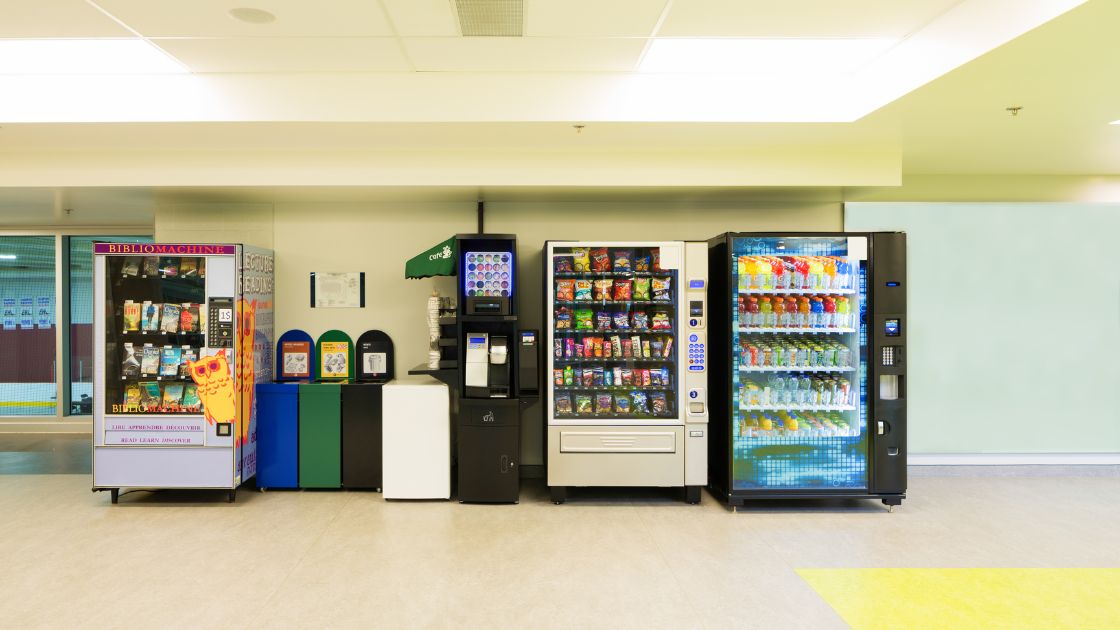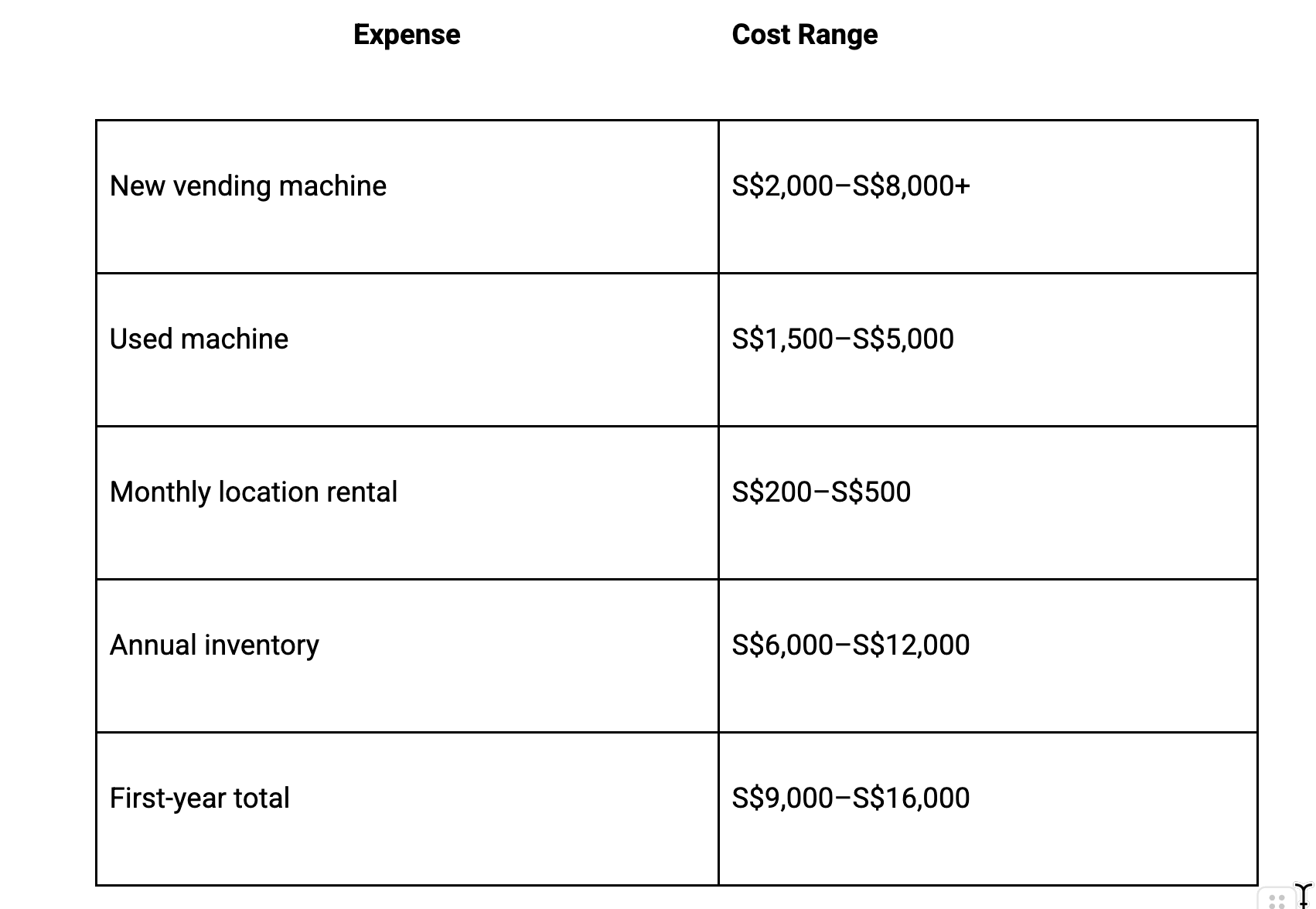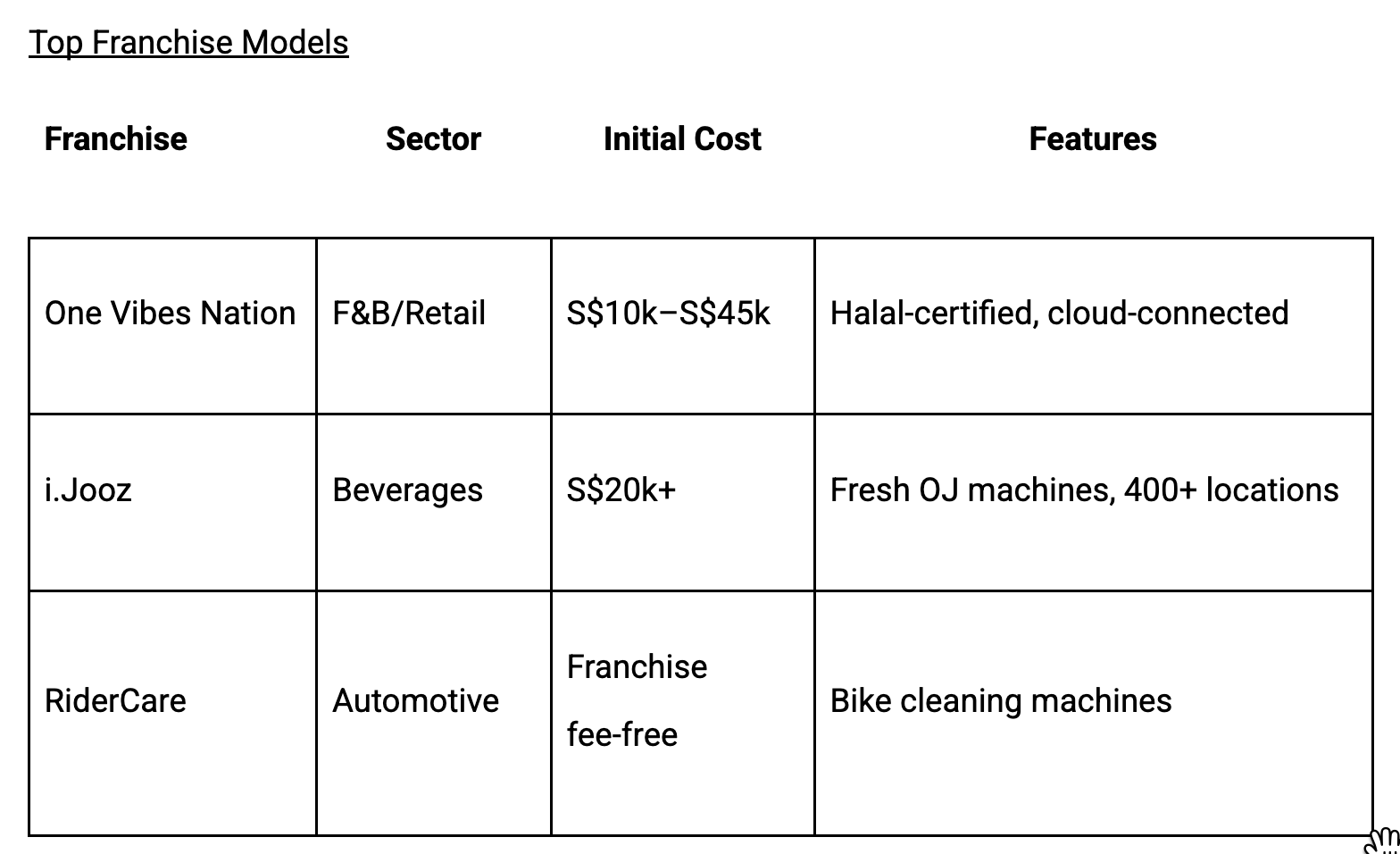Vending Machine Business in Singapore: Franchise Opportunities & Startup Guide
Singapore's dynamic urban landscape and tech-forward environment make it a fertile ground for innovative business ventures. Among these, the vending machine market stands out as a sector ripe with opportunity, offering convenience and accessibility to a wide range of products.
This guide provides a comprehensive overview of Singapore's vending machine market in 2025, exploring startup strategies, franchise opportunities, and key trends shaping the industry.
Singapore’s Vending Machine Market Overview
The vending machine market in Singapore is experiencing robust growth, reflecting evolving consumer demands and technological advancements. Valued at USD 487.32 million in 2024, market projections estimate a rise to USD 619.45 million by 2030, demonstrating a Compound Annual Growth Rate (CAGR) of 4.14%. This expansion is fueled by several key factors:
- Busy Urban Lifestyles and 24/7 Convenience Demand: Singapore's fast-paced lifestyle drives a significant need for readily available, round-the-clock access to goods and services. Vending machines adeptly cater to this demand, offering instant solutions for busy individuals.
- Tech Adoption: The integration of technology is revolutionizing the vending industry. Cashless payment systems, AI-powered inventory tracking, and IoT connectivity are becoming increasingly prevalent, enhancing operational efficiency and customer experience.
- Shift Toward Healthier and Niche Products: Consumer preferences are evolving beyond traditional snacks and beverages. There is a growing demand for healthier options such as organic juices and salads, as well as niche products like pharmacy items and tech accessories dispensed through vending machines.
Currently, food product vending machines dominate the Singaporean market due to the high demand for convenient, quick meal
How to Start a Vending Machine Business
Embarking on a vending machine business in Singapore requires careful planning and execution. Here are the essential steps to launch your venture:
Steps to Launch
- Niche Selection: Identifying a profitable niche is crucial. Popular choices include beverages, snacks, and hot meals. However, emerging trends point towards opportunities in fresh juices, eco-friendly products, and Halal-certified items, catering to evolving consumer preferences.
- Market Research: Thoroughly analyze the competitive landscape, particularly in high-traffic areas such as MRT stations, offices, and shopping malls. Understanding existing vending machine offerings and identifying underserved locations is key to strategic placement.
- Business Registration: Register your business with the Accounting and Corporate Regulatory Authority (ACRA). Self-registration costs approximately S$115, while agency-assisted registration can range up to S$1,000.
- Licensing: If your vending machines dispense cooked meals or raw meat, a Singapore Food Agency (SFA) license is mandatory, costing S$195 per year. Machines dispensing pre-packaged snacks and beverages are typically exempt from this specific license.

Costs Breakdown
Starting a vending machine business involves various costs, which can be broadly categorized as follows:

These figures provide an estimated range, and actual costs may vary based on vending machine type, location, and inventory choices.
Franchise Opportunities in Vending
For entrepreneurs seeking a potentially lower-risk entry into the vending machine sector, franchising presents a compelling option.
Benefits of Franchising
- Lower Risk: Franchises often operate on proven business models, reducing the uncertainties associated with launching an independent venture. Examples like Boon Lay Power Nasi Lemak vending machines demonstrate the viability of established franchise models in this space.
- Support and Training: Franchisors typically provide comprehensive training, covering operational procedures, inventory management, and technology integration. This support system is invaluable, especially for those new to the vending industry.
- Cost Efficiency: Franchise opportunities can offer a cost-effective startup pathway. Initial investments can range from S$10,000 to S$45,000, encompassing machinery and initial franchise fees, potentially lowering the barrier to entry compared to independent setups.
Top Franchise Models
Several franchise models are gaining traction in Singapore's vending machine marke

To navigate the financial aspects of franchising effectively, resources like the WSQ Franchise Business Operations (FBO) program offered by FLA (Singapore) are highly beneficial. This 3-day e-learning course equips both existing and aspiring franchisees with essential skills in investment appraisal and franchise financial management, ensuring a robust and indepth understanding of the financial returns & obligations.
The vending machine industry is continuously evolving, driven by technological advancements and sustainability concerns.
Smart Vending
- QR Code Payments and Real-Time Analytics: Smart vending machines are increasingly incorporating QR code payment systems for cashless transactions and real-time sales data analytics for efficient inventory management and sales tracking.
- AI-Driven Inventory Management: Advanced AI integration is being utilized for sophisticated inventory management. For instance, Changi Hospital's telemedicine vending machines leverage AI to manage medication dispensing and consultations.
Sustainability Focus
- Reverse Vending and Recycling Initiatives: Singapore's push for environmental sustainability is influencing the vending sector. The implementation of a 10¢ deposit scheme for beverage containers in 2025 is expected to drive the adoption of reverse vending machines that reward recycling.
- Eco-Friendly Operations: Solar-powered vending machines and biodegradable packaging are emerging as trends, aligning with consumer demand for environmentally conscious businesses.
Challenges & Solutions
Despite the promising outlook, vending machine businesses face certain challenges:
- High Competition: Securing prime locations is increasingly competitive. Solutions include targeting niche locations such as corporate parks and hospitals where competition may be less intense and exclusivity agreements are more attainable.
- Hidden Fees: Franchise agreements may contain hidden fees. Carefully negotiate royalty caps (typically ranging from 3–10% of revenue) and clarify all potential costs upfront.
- Maintenance Costs: Ensuring timely maintenance is crucial for operational continuity. Partnering with maintenance providers like ReinVend, offering 24/7 support, can mitigate downtime and ensure machine reliability.
Spotlight on Innovative Vending Solutions: FLA Singapore Members
For entrepreneurs looking to delve into the vending machine market, several members of the Franchising and Licensing Association (FLA) Singapore offer compelling and technologically advanced opportunities. These include:
1. Aikit (InstaChef Singapore)
- Concept: Aikit Pte Ltd is a food technology company revolutionizing convenient dining through its InstaChef brand. InstaChef offers AI-powered automated smart kitchen units that dispense fresh, hot, and restaurant-quality meals 24/7.
- Focus: They emphasize combining advanced technology with efficient supply chain management to deliver a variety of quick, traditional, and authentic meals catering to diverse tastes at affordable prices. Their machines provide hot, chef-curated meals within minutes.
- Franchise Information: As a member of FLA Singapore, Aikit provides opportunities for franchisees to tap into the growing demand for ready-to-eat meal solutions with a technological edge.
- Learn more about Aikit Pte Ltd on FLA Singapore
2. iJooz (iJooz Ai Pte Ltd)
- Concept: iJooz is a well-established name in Singapore, pioneering smart vending solutions, most notably their fresh orange juice vending machines. These machines utilize robotics, AIoT (Artificial Intelligence of Things), and premium cold-pressed technology to deliver natural, freshly squeezed orange juice.
- Focus: iJooz aims to make fresh juice accessible and convenient, with a large network of machines across the island. They leverage technology for efficient operations, including data analytics for restocking and maintenance, and offer app-based payments for customer convenience.
- Franchise Information: iJooz offers a franchise for its innovative fresh juice vending machines, allowing partners to launch an automated retail business within FLA Singapore's forward-thinking F&B franchise network.
- Learn more about iJooz franchise on FLA Singapore
3. XCoffee (X FOOD TECHNOLOGIES PTE LTD)
- Concept: XCoffee is at the forefront of automated beverage services with its AI-powered robotic barista vending machines. These machines offer a wide variety of customizable hot and iced coffee drinks, and other beverages, prepared with premium ingredients, available 24/7.
- Focus: XCoffee aims to revolutionize the coffee business by offering a fully automated, seamless experience for both customers and franchisees. Their machines boast a large drink menu capacity and are managed by an in-house proprietary cloud-based system for real-time data and management.
- Franchise Information: X FOOD TECHNOLOGIES PTE LTD offers franchise opportunities for their XCoffee robotic barista machines, presenting an investment into the future of automated coffee retail.
- Learn more about XCoffee Singapore.
FAQs
- Q: Can I use one license for multiple machines?
- A: Yes, a single SFA license can cover multiple vending machines, provided all machines are disclosed during the license application process.
- Q: What’s the typical profit margin in the vending machine business?
- A: Profit margins typically range from 30–50% for snacks and drinks, while hot meals may yield margins of 20–35%. These figures can vary based on product costs, location, and operational efficiency.
Conclusion
The vending machine business in Singapore presents a dynamic and evolving landscape for entrepreneurs in 2025. Whether opting for an independent startup or leveraging the benefits of a franchise, understanding market trends, managing costs effectively, and embracing technological innovations are key to success.
By strategically selecting niche/trending industries to enter, securing optimal locations, and prioritizing customer convenience, entrepreneurs can capitalize on the growing vending machine market in Singapore and establish profitable ventures.


